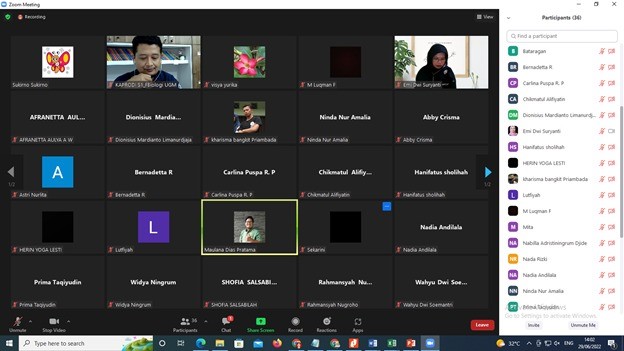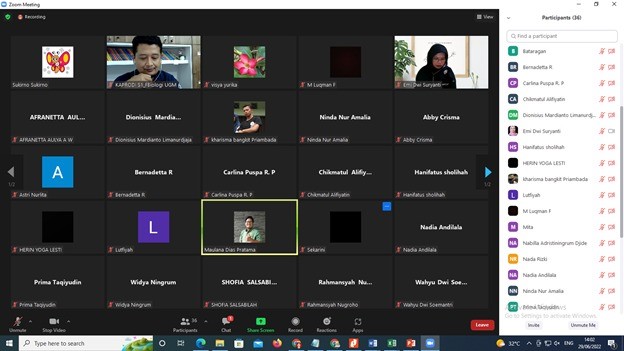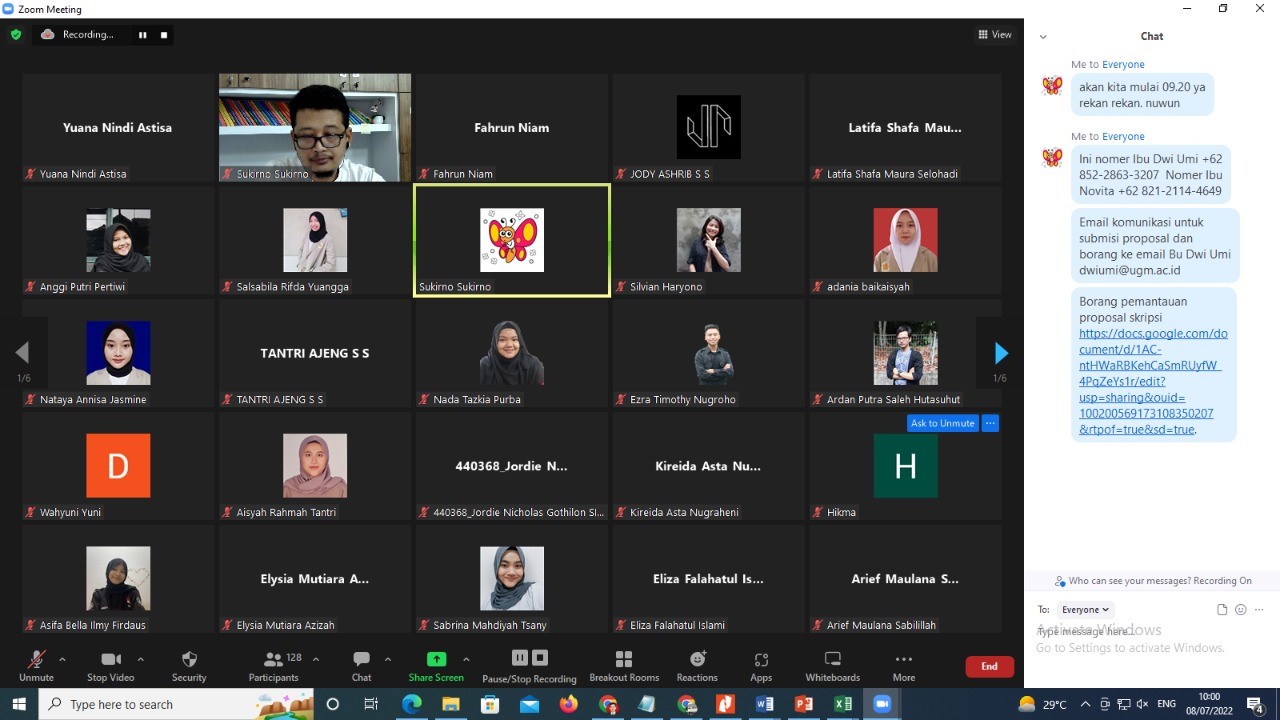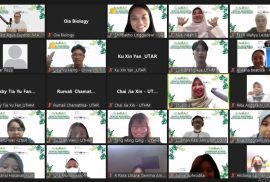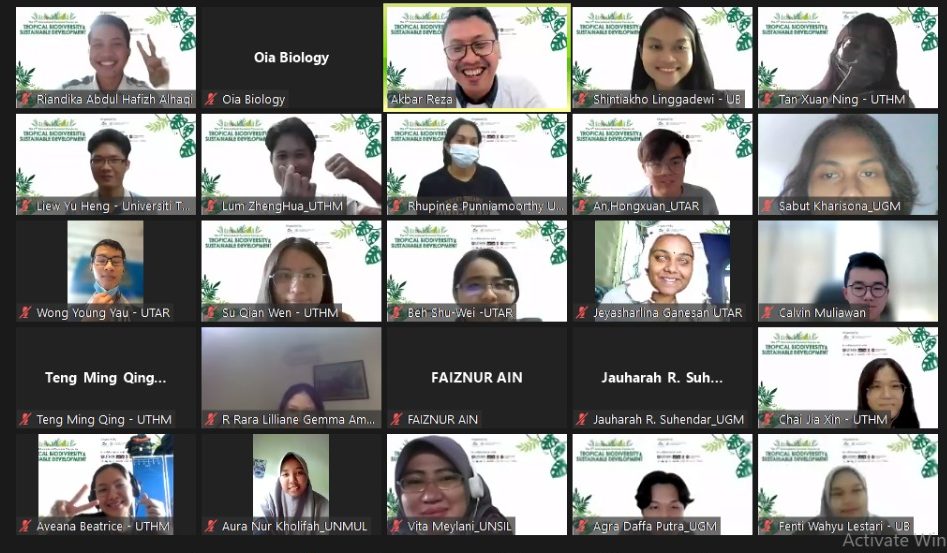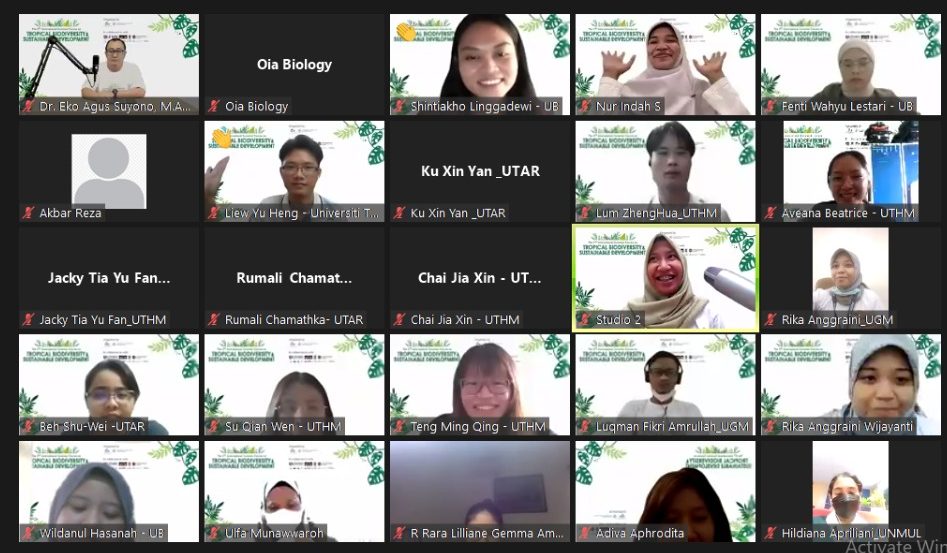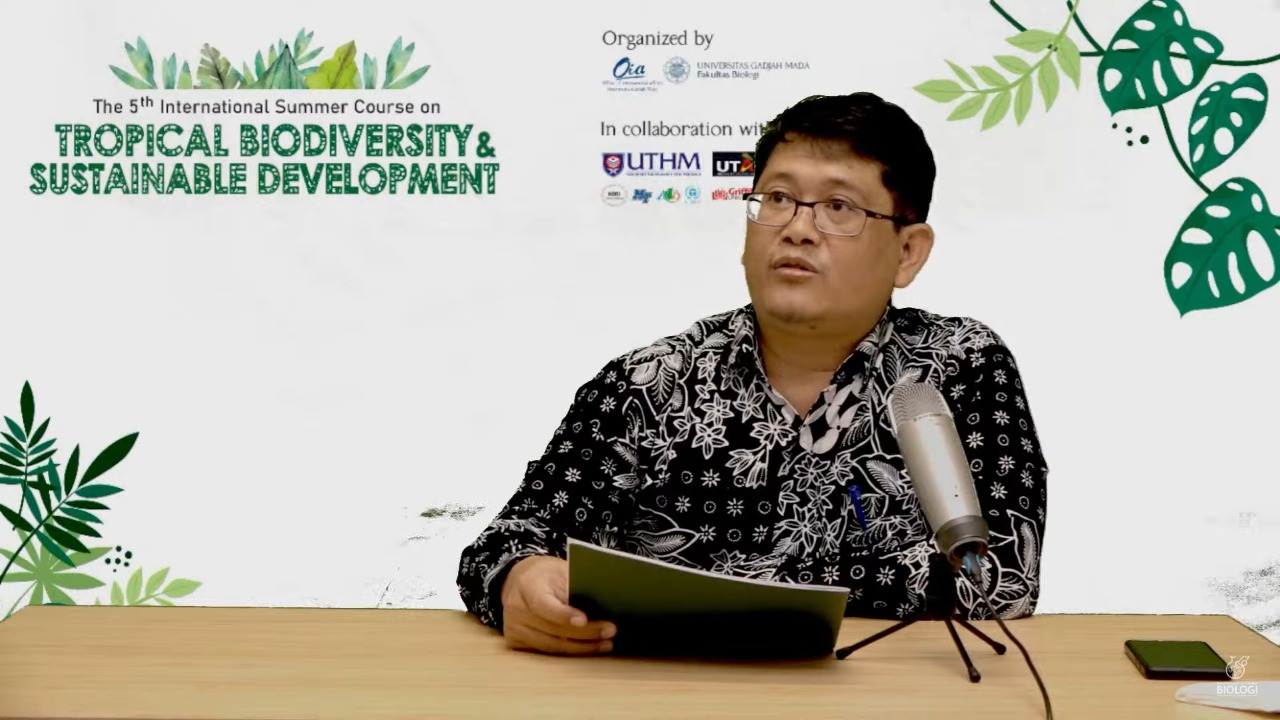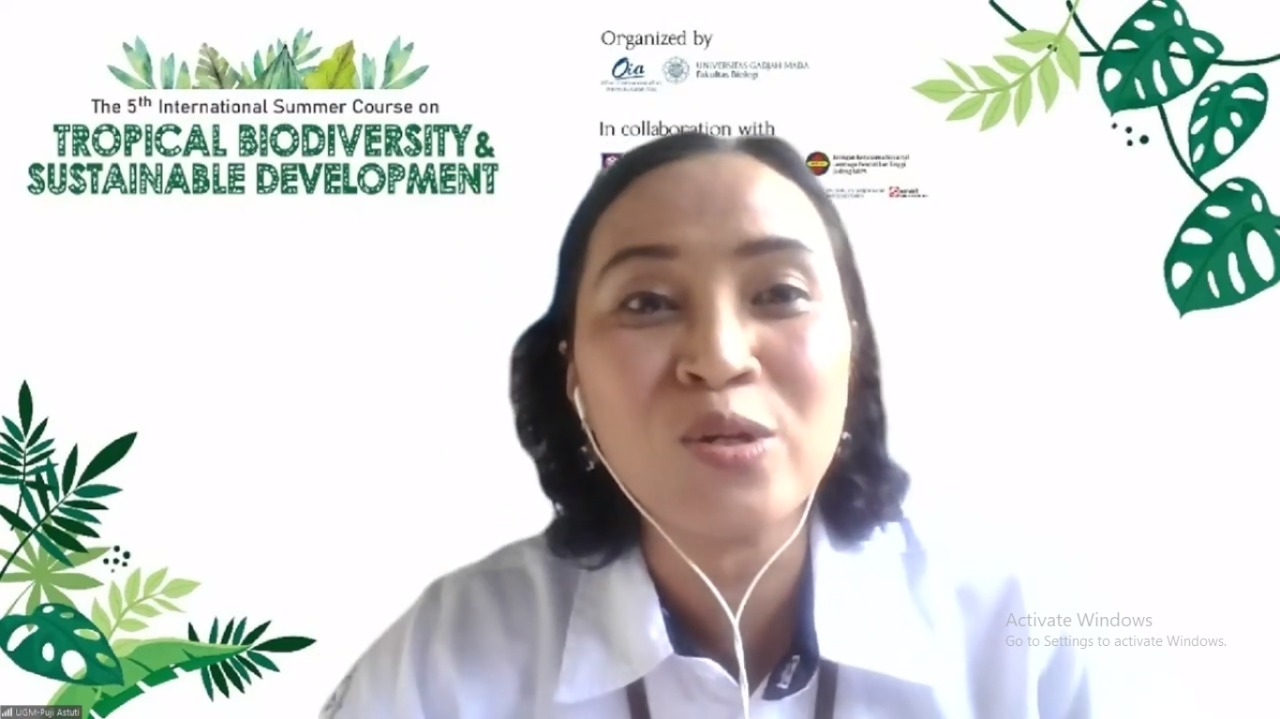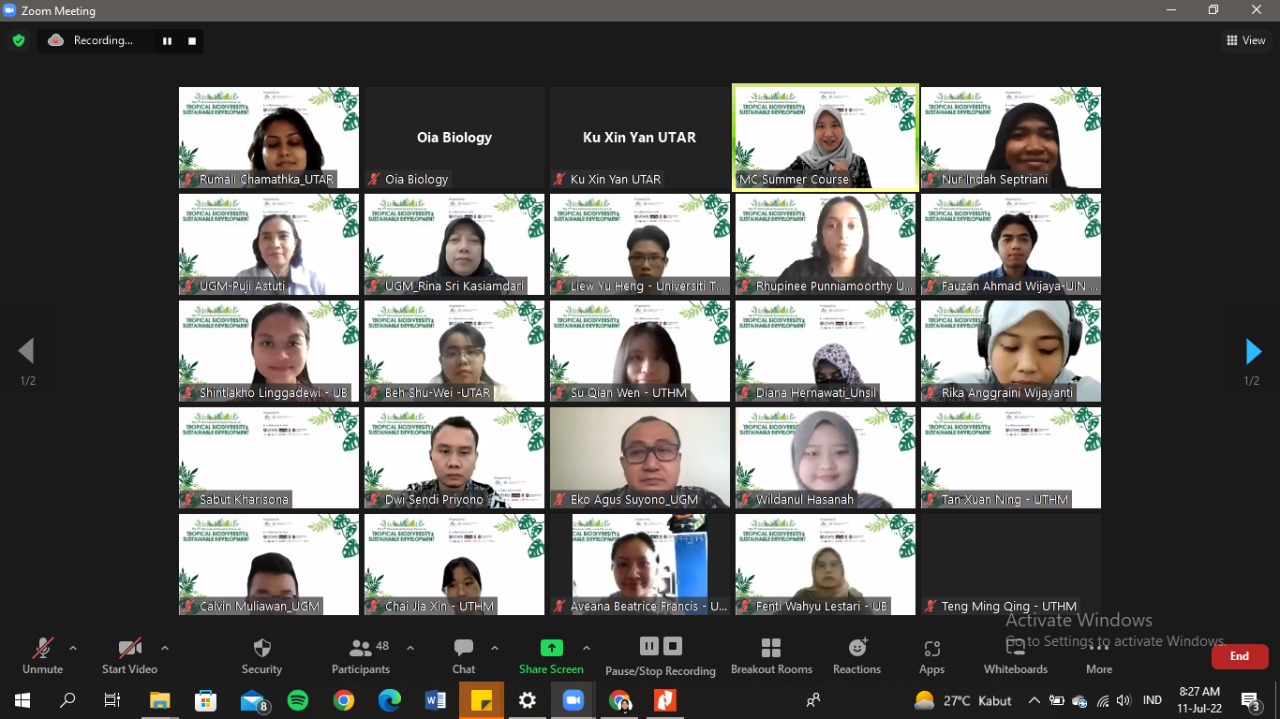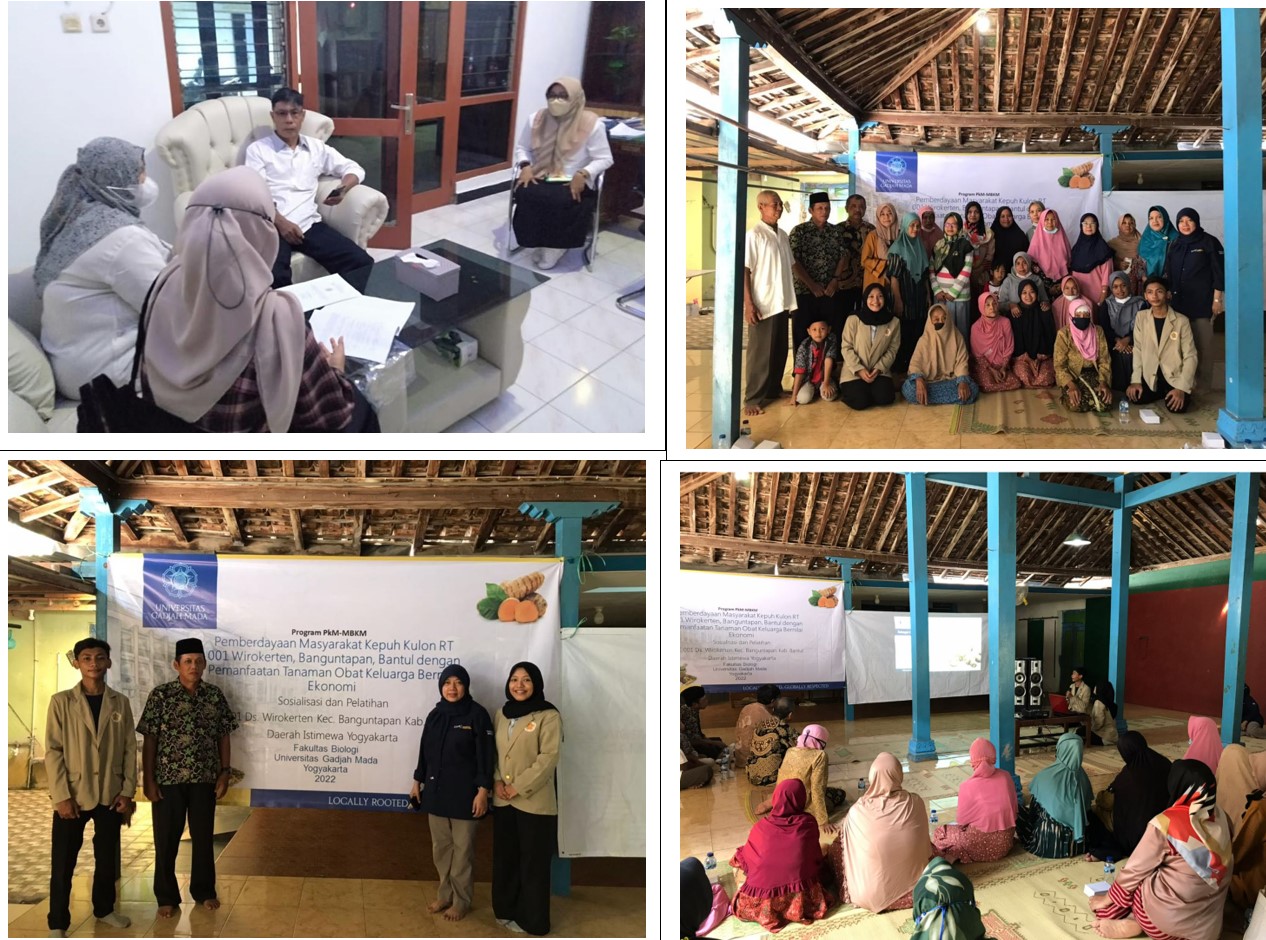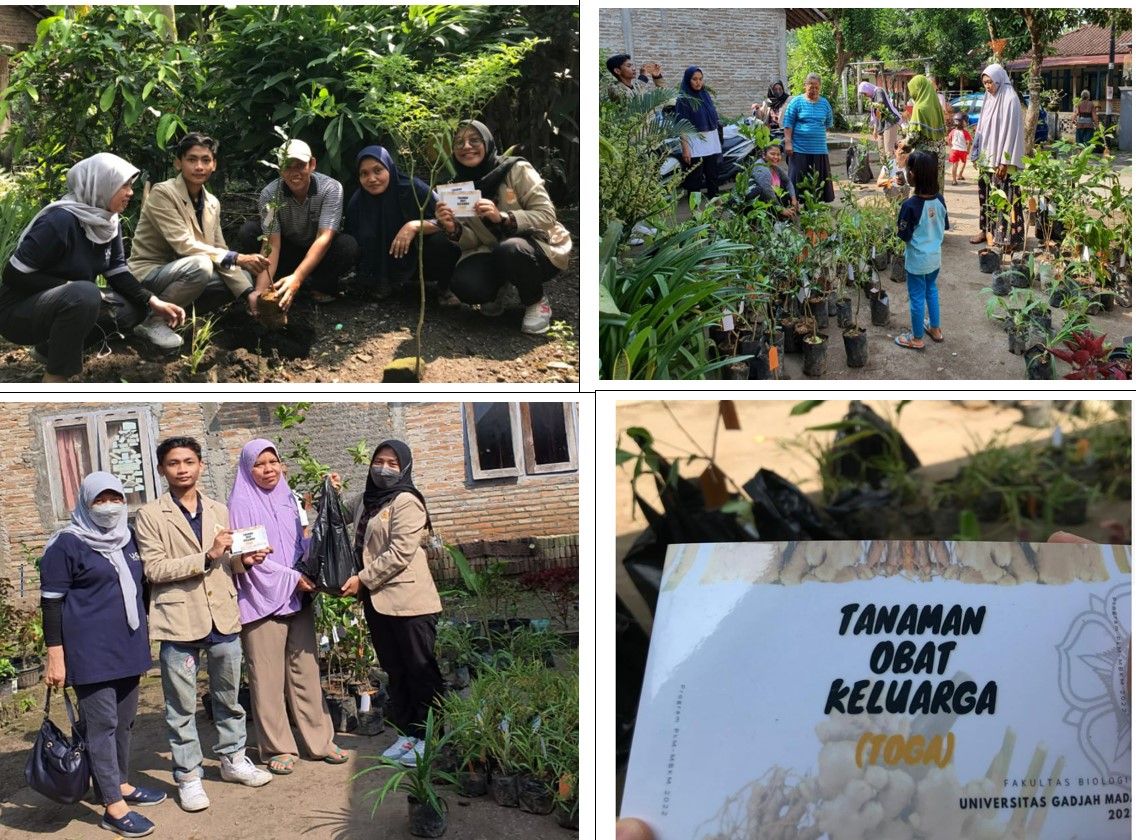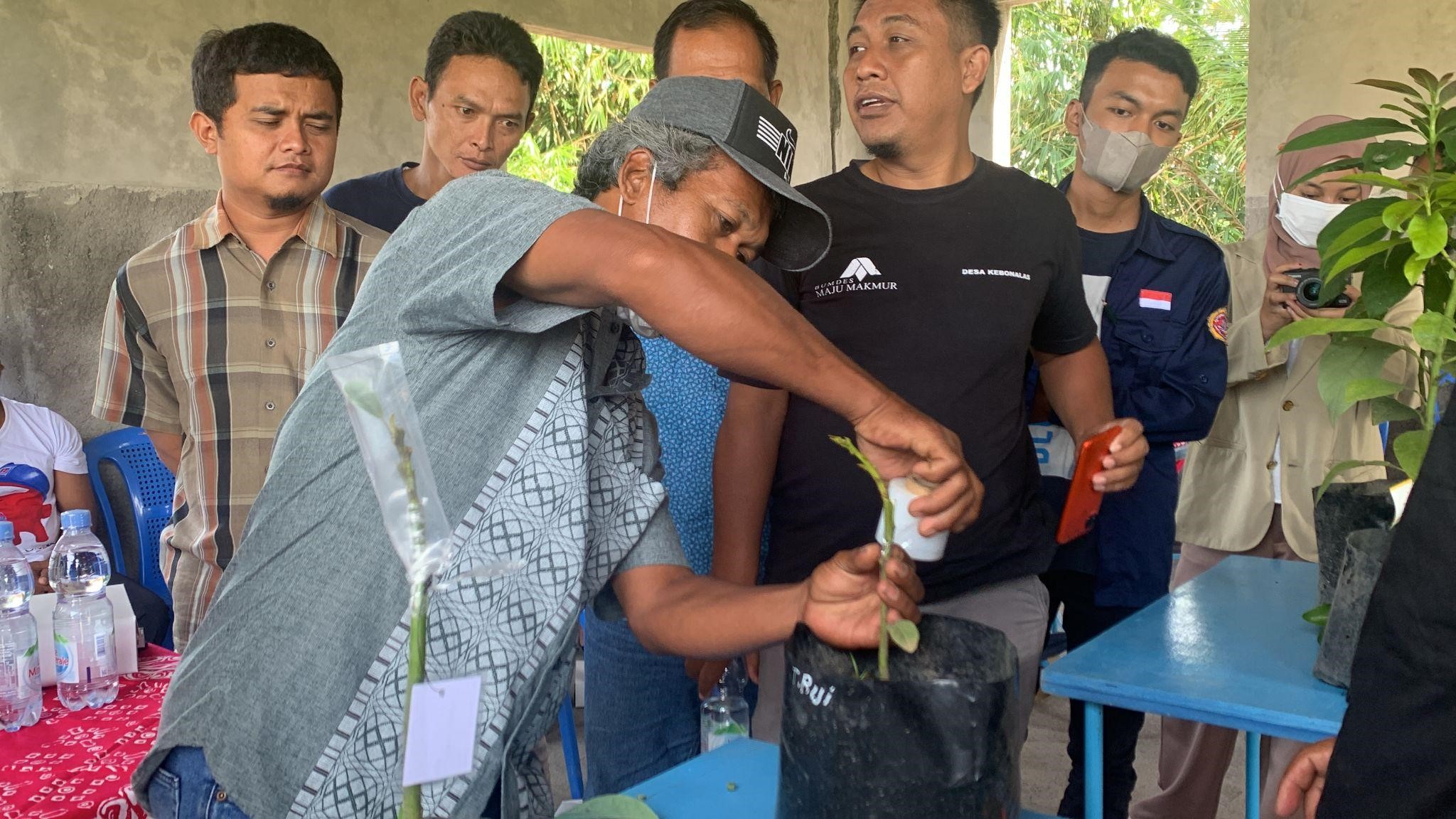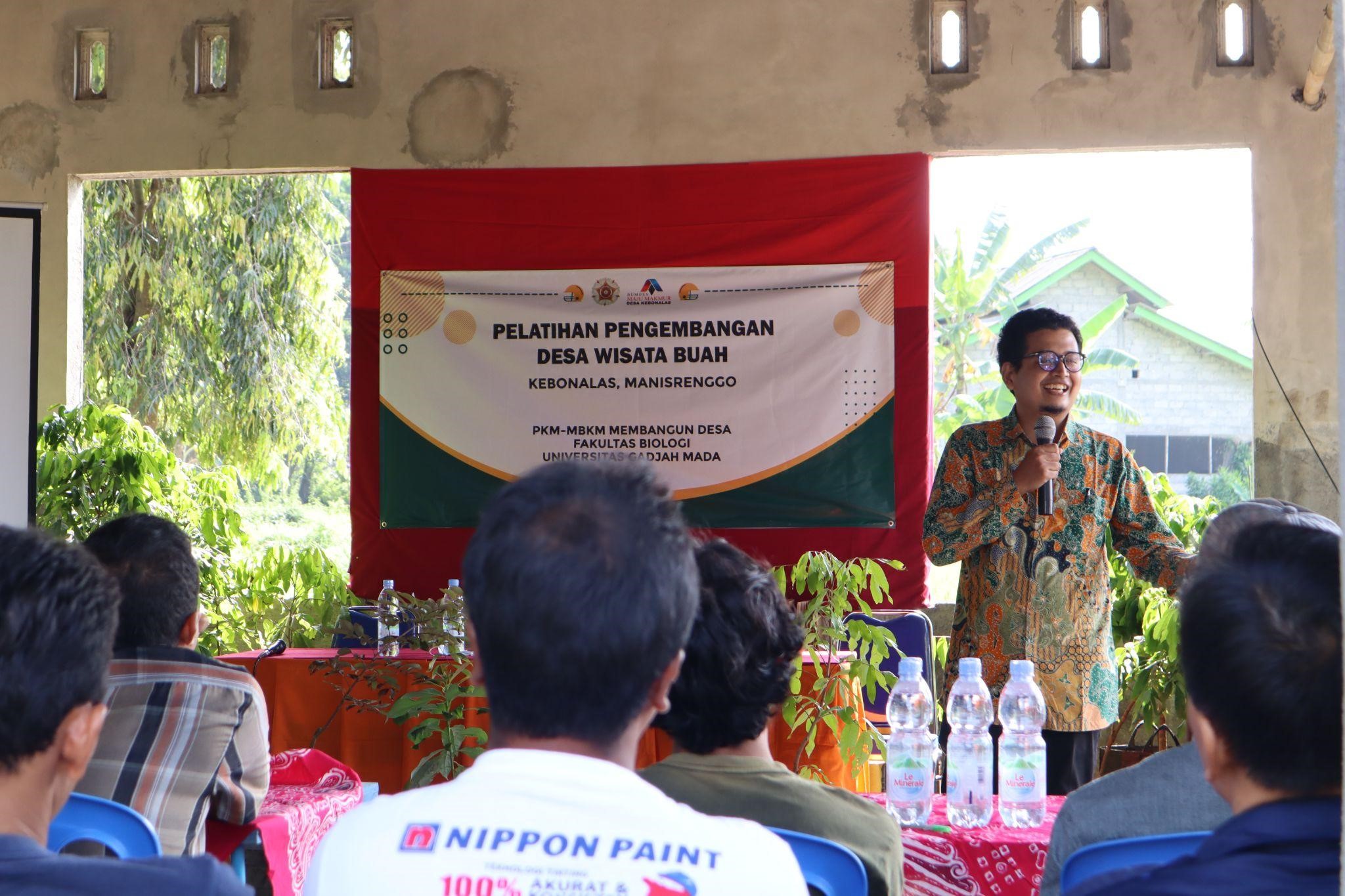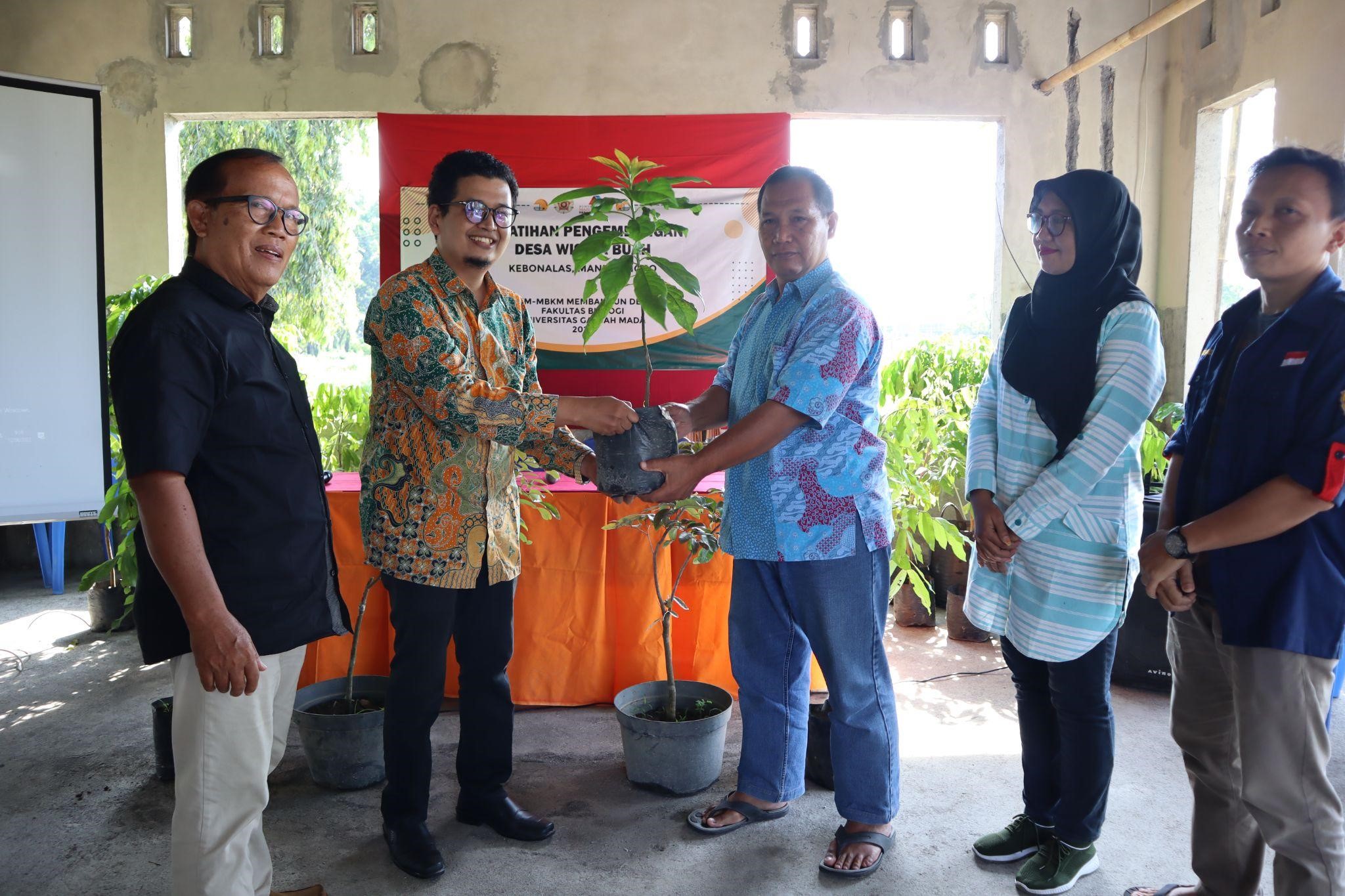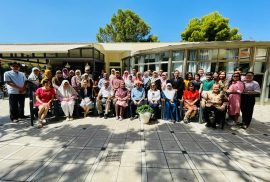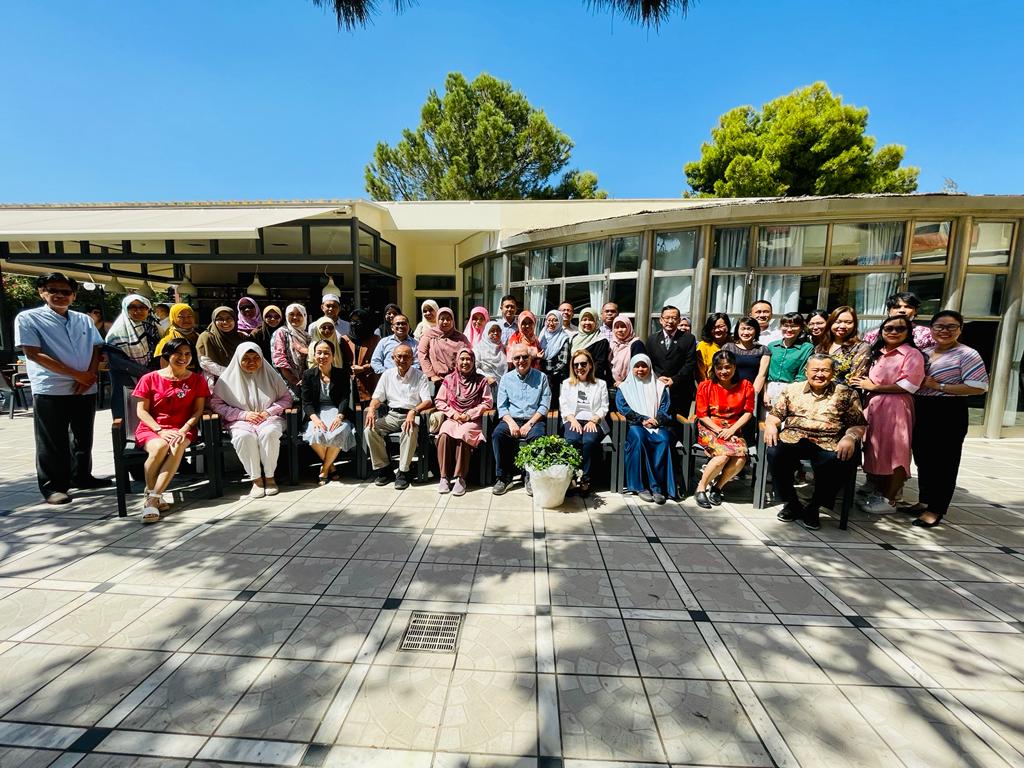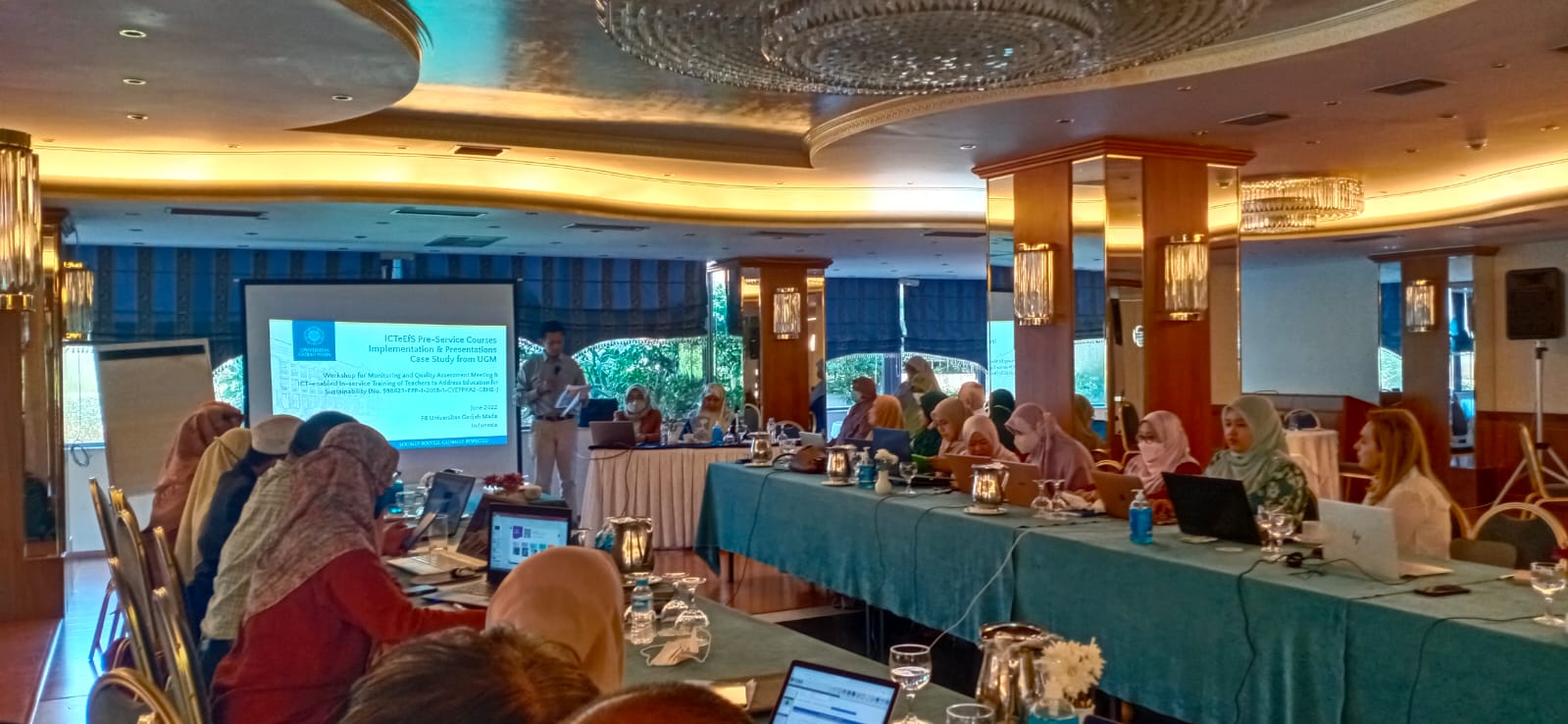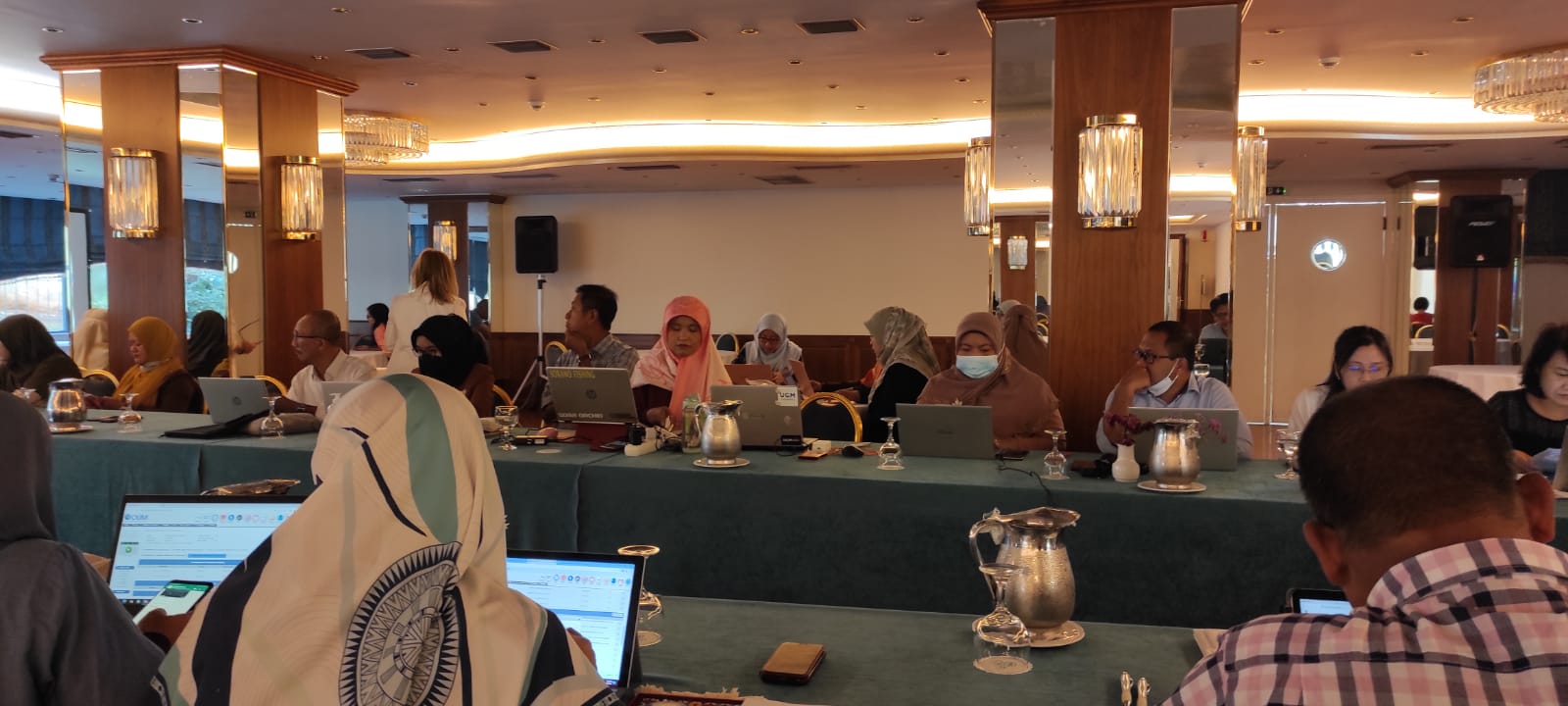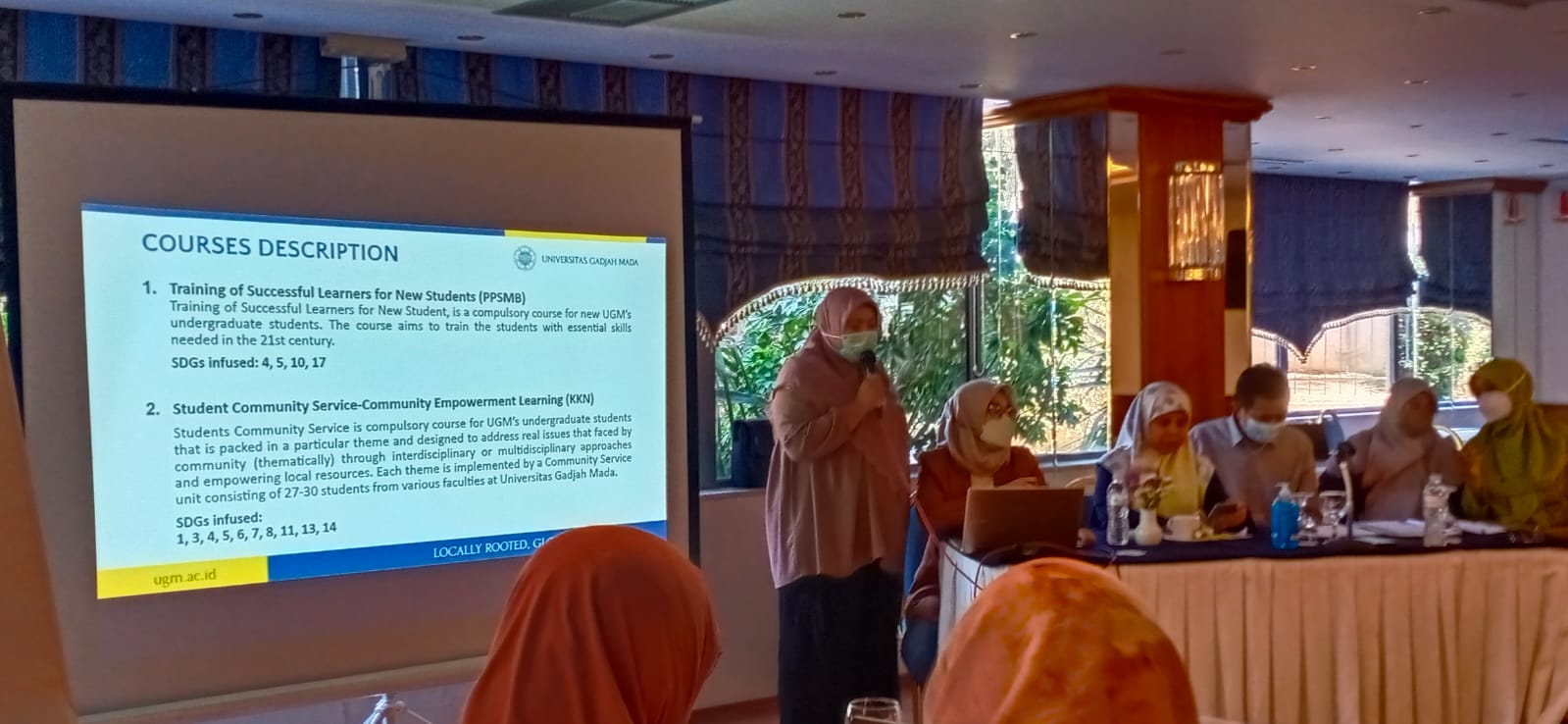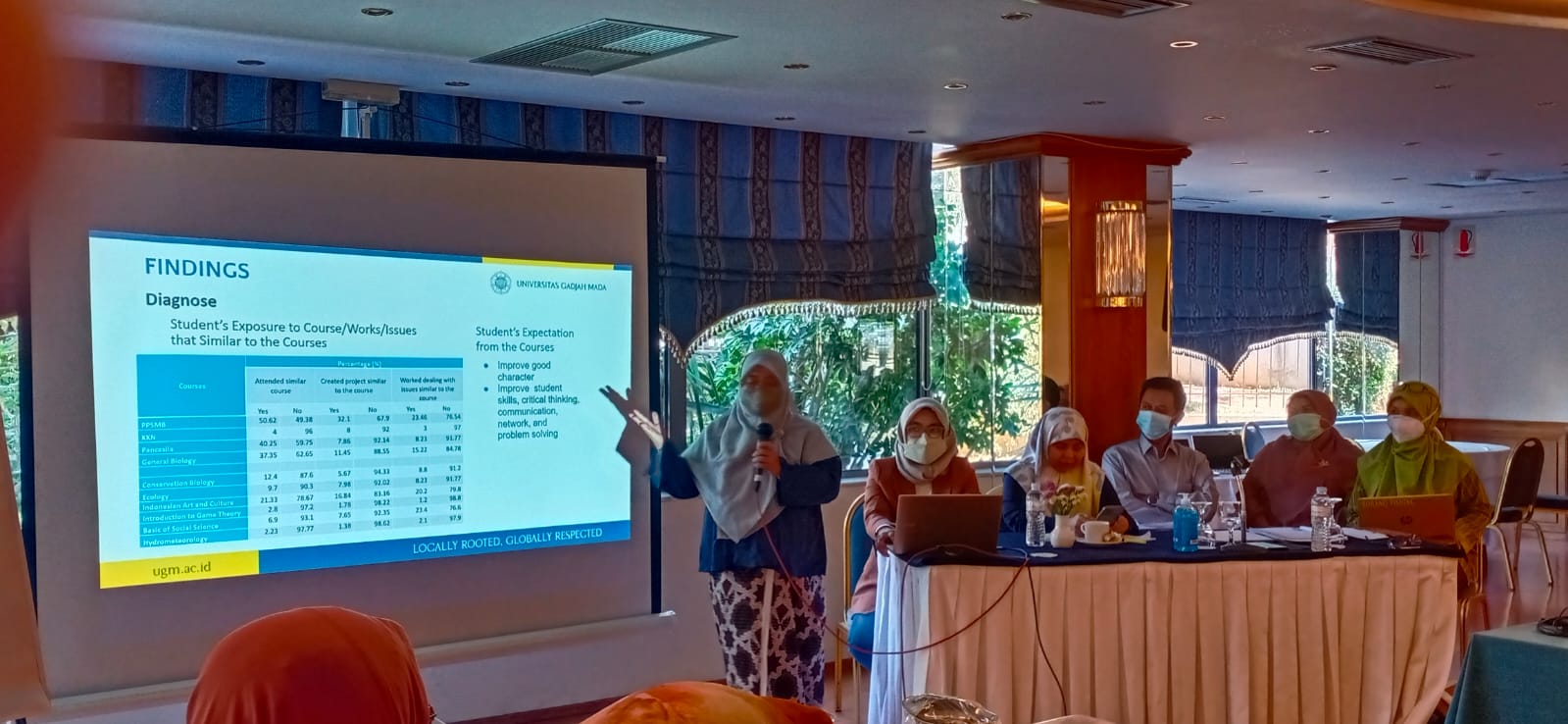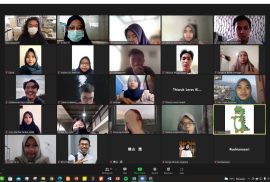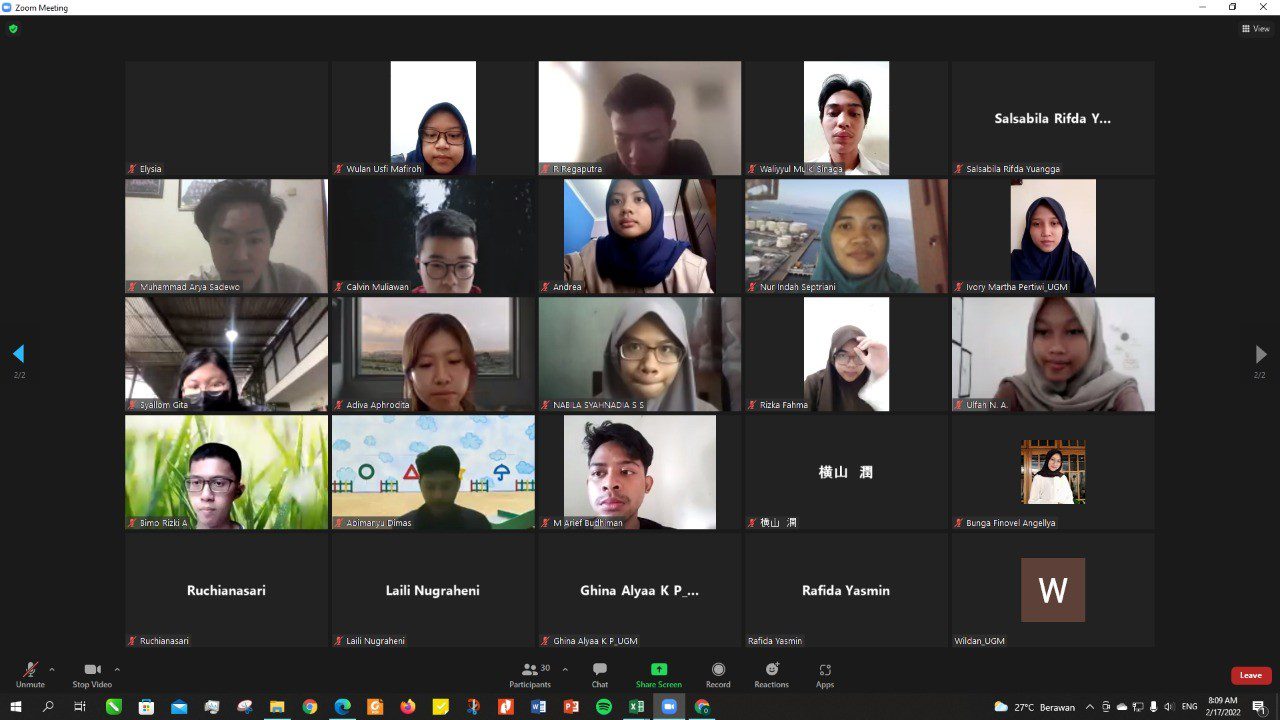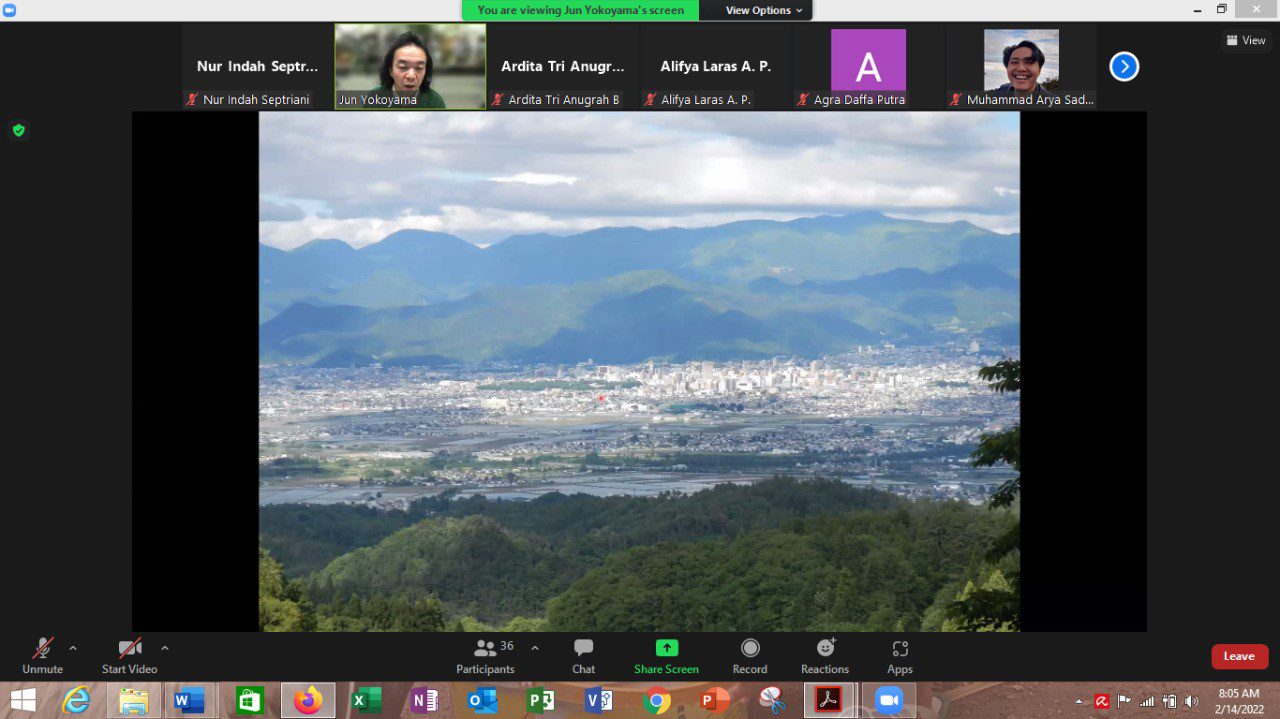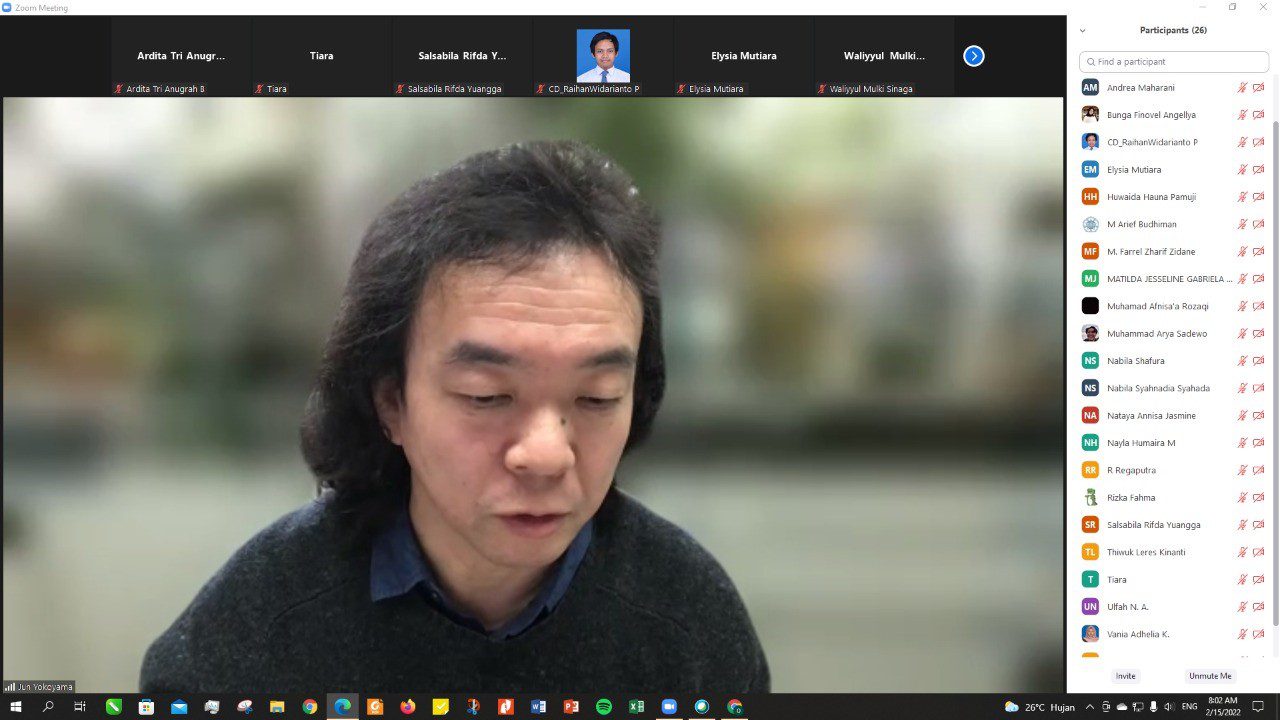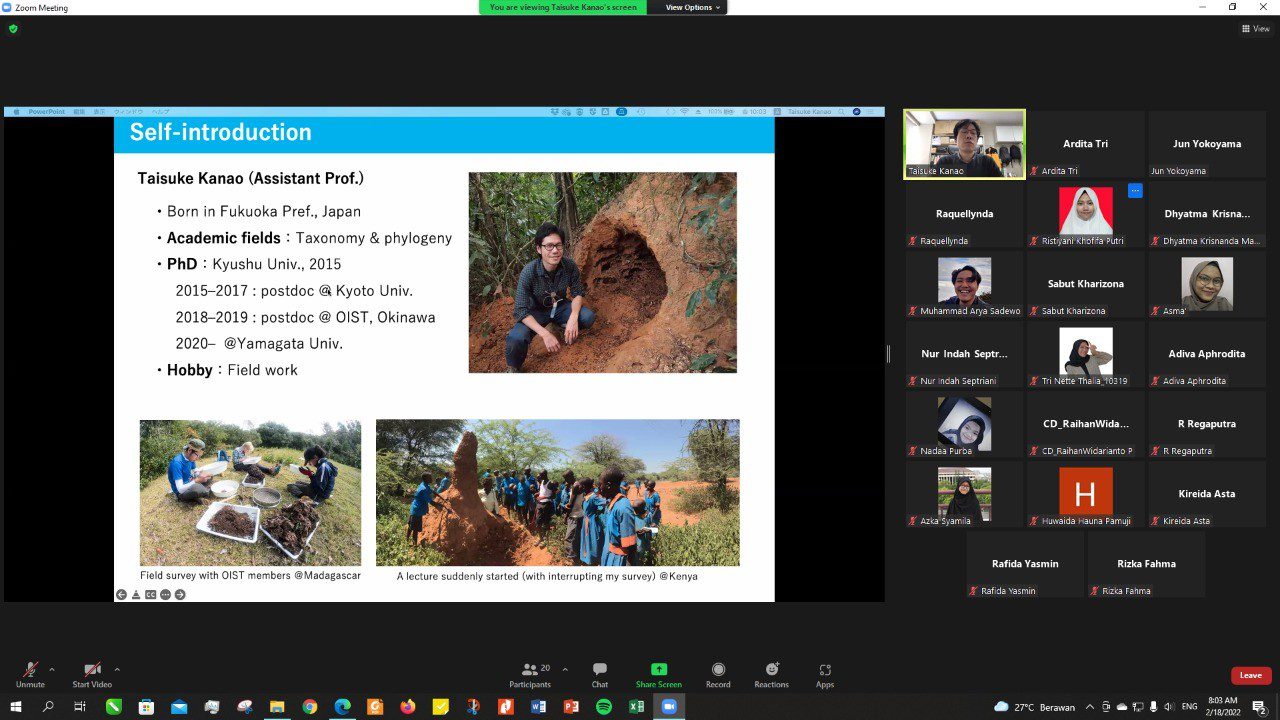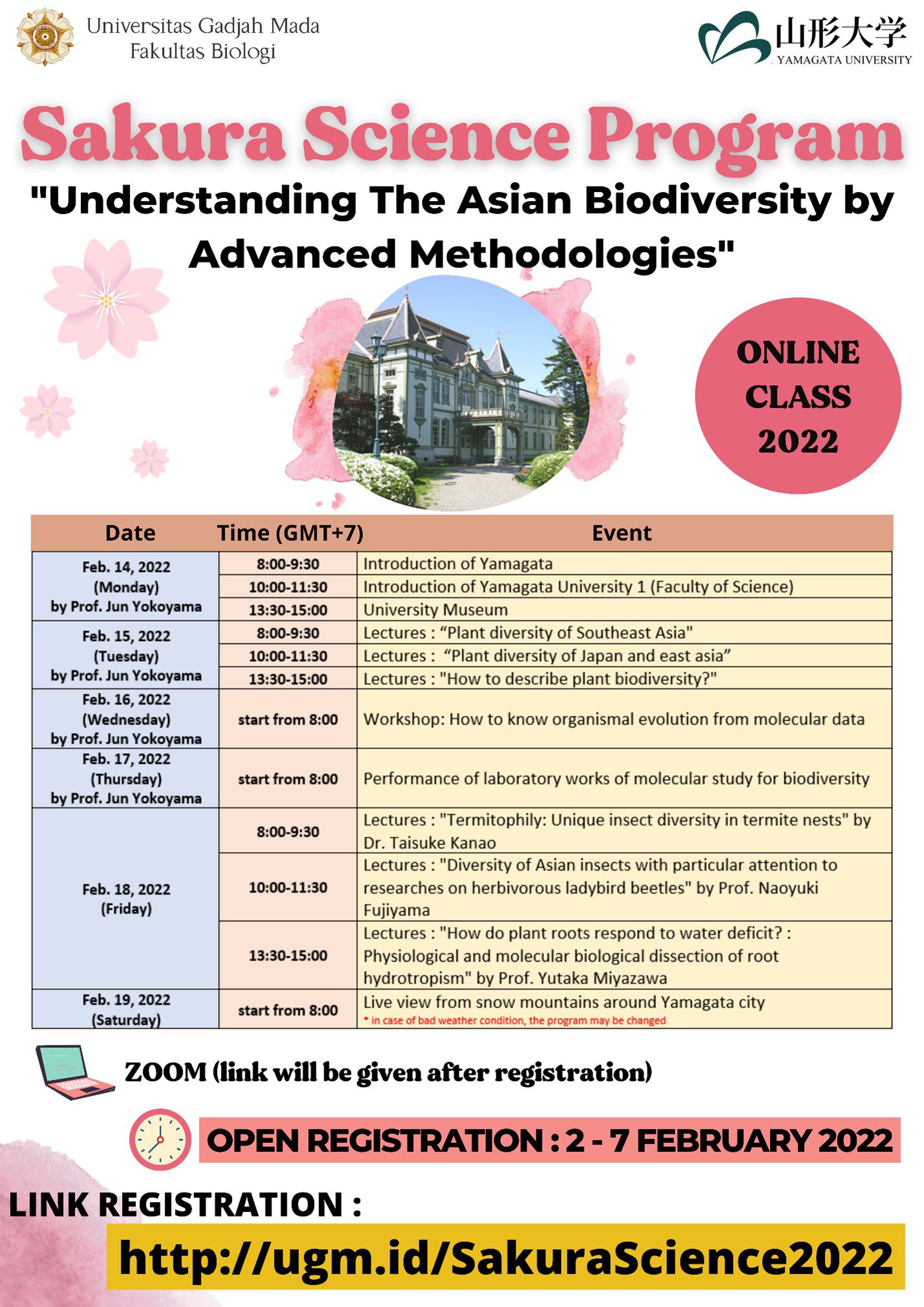The graduation rate for students who graduate on time in the 8th semester (4 years) is quite low (25%). In order to encourage undergraduate study program students of the Faculty of Biology UGM to complete their undergraduate studies on time, the Academic Office organizes monitoring activities for student learning progress. Monitoring was carried out by the Head of the Undergraduate Study Program (Mr. Sukirno, S.Si., M.Sc., Ph.D.) and the Head of the Academic and Student Affairs Section (Ms. Emi Dwi Suryanti, S.Si., M.Sc.). Monitoring was carried out online by inviting students from class 2015, 2016, 2017, 2018, 2019, and 2020. Monitoring for class 2015-2017 was carried out together on June 29, 2022, while for batch 2018, 2019, and 2020 were carried out on 6 July 2022, 8 July 2022, and 5 July 2022, respectively.
Monitoring of undergraduate study program students batch 2015-2017 is carried out to assist and accelerate students to be able to immediately carry out thesis writing and thesis defense. In this meeting, interviews and discussions were held to identify problems faced by students. Students are given directions and explanations regarding the completeness of documents for submitting study extensions, thesis defense, graduation periods, and completeness of graduation registration. This session was attended by 85% of 2015-2017 students who are still active. Class 2015 students are given the opportunity to complete their studies up to the January 2023 graduation period, while the 2016 and 2017 classes must have passed judicial review a maximum of July 2023 and 2024, respectively. For these students, those who have not met judicial review on July 2022 period, the students must apply for an extension of the study through simaster.
Monitoring for the 2018 class was carried out to identify problems faced by students, including ensuring that students had registered for thesis proposals, carried out research/data collection and writing manuscripts/thesis scripts, and prepared documents for thesis defense. Students are explained regarding the procedure for registering a thesis proposal, preparing complete documents for the thesis exam, including writing scientific articles that must be submitted to journals or seminars. The students must prepare proof of article submission and submit a publication approval form. The monitoring session was attended by around 120 students, out of the 150 who were active.
The 2019 batch was monitored to encourage students to immediately be encouraged to register thesis proposals. This batch of students, most of whom have conducted proposal seminars, were explained about the thesis proposal registration procedure, the requirements for the thesis proposal registration document, the requirements and procedures to be able to carry out a thesis defense, and tips how to complete the undergraduate level within 3.5 or 4 years. Tips include registering proposals at the beginning of time and be aware for time constraint requirements for thesis exams, strategy for taking courses in semesters 7 and 8, as well as using temporary KRS facilities to register for thesis and carry out research.
At the end of the 4th semester, students of the class of 2020 are allowed to choose study interest. Students can choose 2 study interests from 3 study interests in the undergraduate program, namely Functional and Developmental Biology, Environmental Biology and Biodiversity, and Molecular Biology and Biotechnology. To be able to make a selection of these interests, students are explained about the procedure for selecting interests through filling out specialization forms (gforms and excel forms). After selecting the interest, then the thesis supervisor will be determined which will be carried out by the Head of Study Program together with the deputy dean for academic and student affairs as well as the thesis management lecturer. After determining the thesis supervisor, students are expected to have discussions with DPS to determine research topics in order to immediately prepare proposals and proposal seminars. For this class of 2020, it is expected to be able to submit the interest form by filling out the thesis specialization form (to email kaprodi-s1.biologi@ugm.ac.id) and filling out the following form https://forms.gle/Nxyiym37CMdcrg2LA. No later than July 21, 2022. For consideration of study interests, students can access lecturers’ expertise at https://forms.gle/vRPxDhy8mCunwn4r6.
Monitoring of learning progress will be carried out regularly at the end of each semester. The results of this monitoring will be used to formulate policies or improve procedures in order to accelerate the study period.

